Census of 186 Haitian plantations: A remarkable record of colonial plantation history.
- Regular price
- €17.500,00 EUR
- Regular price
-
- Sale price
- €17.500,00 EUR
- Unit price
- per
Année 1776. Récensement général de la plaine & des mornes de la paroisse Saint-Joseph & Torbeck du Fond de l'Isle-à-vache, 1776.
Haiti, 1776.
Large folio (46 x 30 cm.). [1 blank], [18], [2 blank] pp. Manuscript in French in ink on paper.
Sewn, no covers.
This manuscript census from 1776 provides a detailed account of 186 plantations across two parishes, Saint-Joseph and Torbeck, in French colonial Saint-Domingue (now Haiti). The document begins with a register of plantation names, followed by a census divided by parish. The census for Saint-Joseph covers 138 plantations across 12 pages, while Torbeck records 48 plantations on 4 pages. Interestingly, the totals at the bottom of the tables remain unfilled.
For each plantation, detailed information is provided about its so-called free population, starting with the owner and the owner's title, his wife and children, followed by the number of white people in the plantation's service. Then, it lists the number of Black people and gives the plantation's geographical boundaries by naming the adjacent plantations and noting the terrain type (whether flat or hilly). It also outlines the plots of land and their use, such as for growing indigo, coffee, cotton, timber, or food crops, as well as land designated for coral or savanna. The livestock section includes data on the number of horses, donkeys, mules, and sheep.
A particularly intriguing feature of the document is the division made between "Exempts" and "Payants droits" after recording the total number of Black individuals on each plantation. Generally, the "Payants droits" significantly outnumber the "Exempts." These terms are derived from the Code Noir, the legal framework governing the lives of Black people in French colonies.
- "Nègres payant droit" (Negroes paying dues) refers to “free” Black people who were required to pay taxes or fees, usually to the colonial government. Despite their technical status as free individuals, they were often still condemned to plantation labor. This classification was important because it distinguished free Black individuals from both enslaved people and white colonists. To maintain their legal status and rights, free Black individuals, especially in Saint-Domingue, were often subjected to specific taxes or fees.
- "Nègres exempts" refers to enslaved individuals who were exempt from certain duties or obligations, such as hard labor or specific taxes. "Exempts" implies they had been granted some privileges or special status, potentially due to their skills, loyalty, or important roles on the plantation, like serving as overseers or skilled artisans. These individuals were spared from the harshest conditions imposed on the broader enslaved population.
These terms reflect the complex social and legal hierarchy that existed in French colonial society, where race and status were deeply interconnected. This intricate classification system reveals the layered nature of freedom and subjugation within plantation life, further emphasizing how even "free" Black people were often caught in a web of restrictions and labor obligations.
Condition: a few notes in pencil and ink and some wear to the blank front and back leaves. Two old folds. Slightly damp stained throughout. A bit worn a the spine. Otherwise in very good condition.
Couldn't load pickup availability
Share
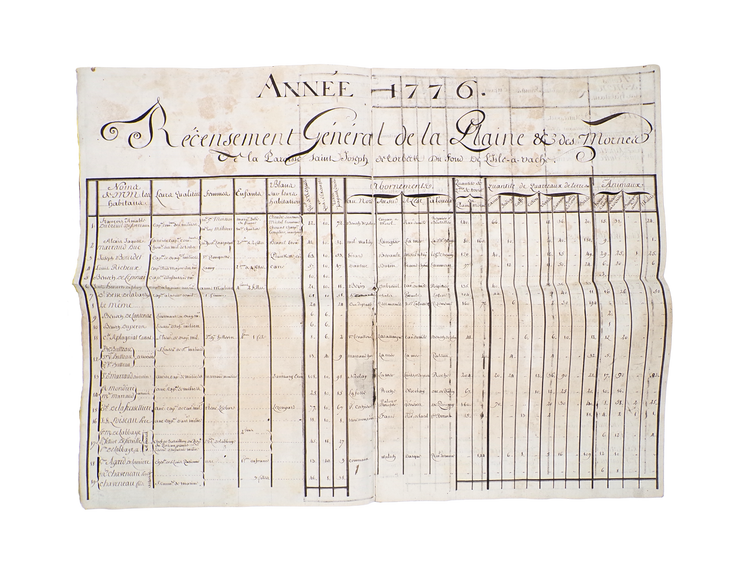
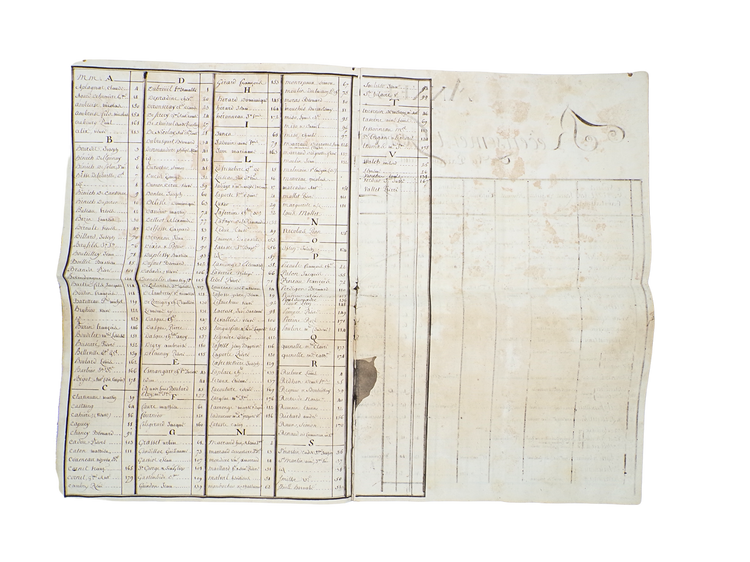
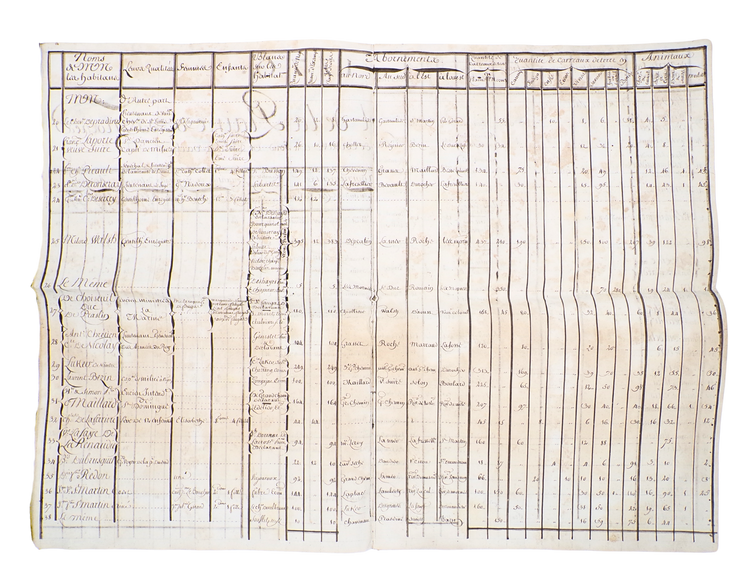
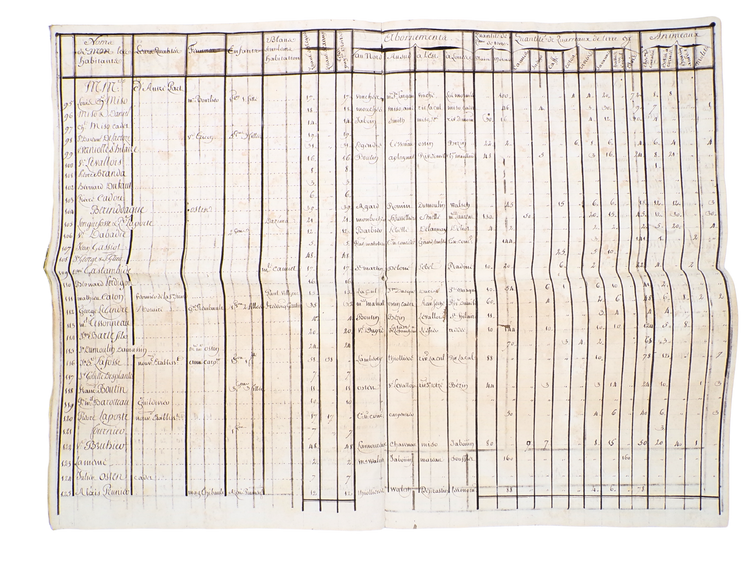
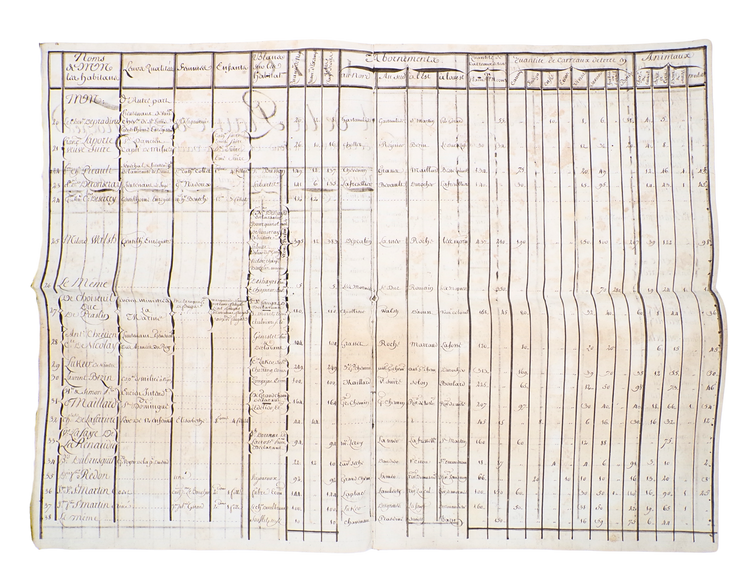
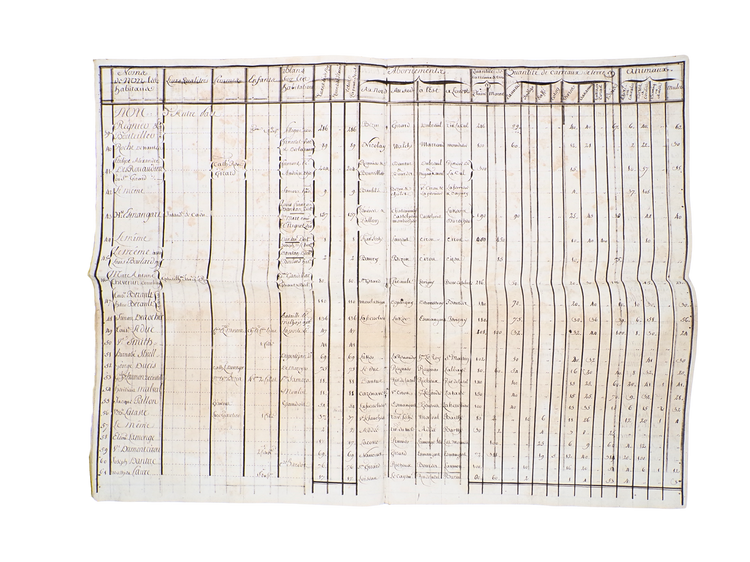
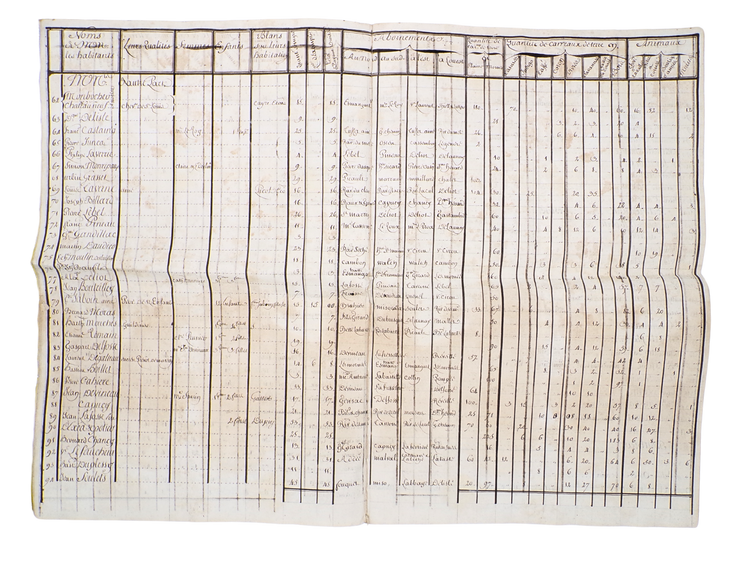
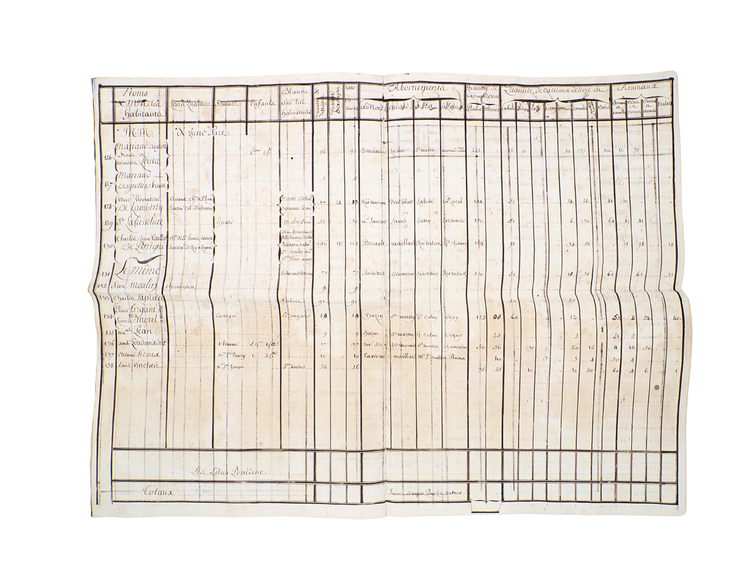
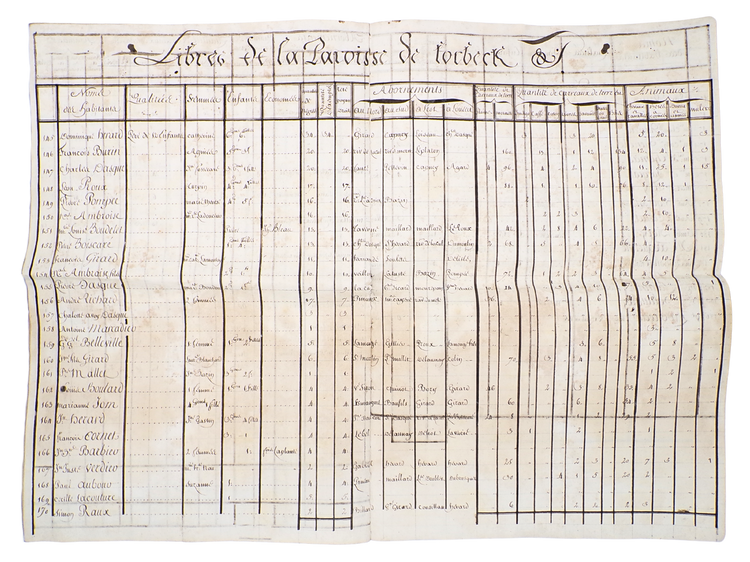
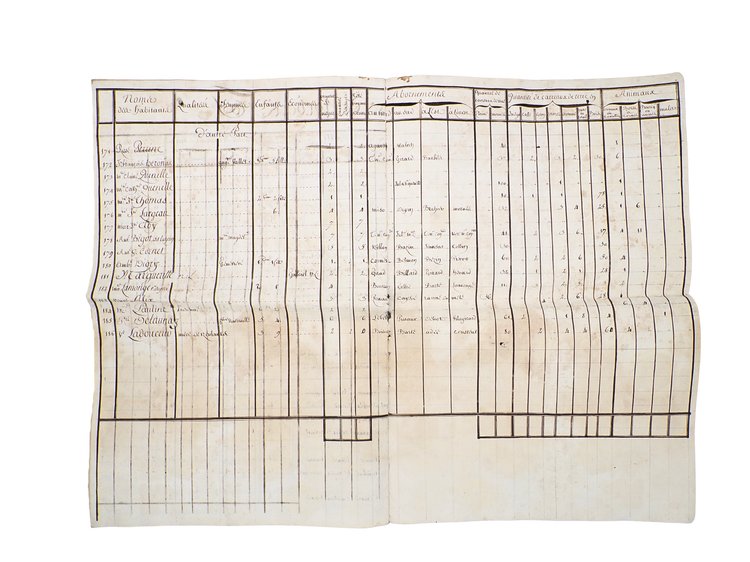
Contact
Email: hugo@artemrarebooks.com
Phone: +31651042297
Visit us on appointment at:
Former US Embassy
Lange Voorhout 102
2514EJ
The Hague (The Netherlands)
Shipping address:
Nannie van Wehlstraat 51
2548MN
The Hague
The Netherlands










